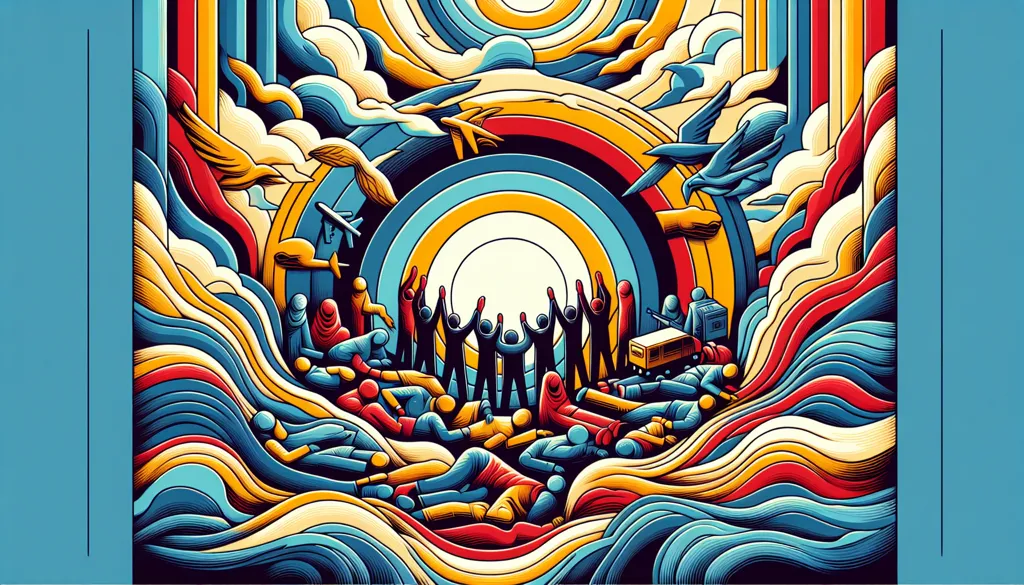Resurgence of Conflict in Gaza: A Humanitarian Catastrophe
The recent upheaval in Gaza following the collapse of the ceasefire has reignited hostilities between Israel and Hamas, resulting in severe humanitarian consequences. As a moderate Midwestern mother with a background in journalism, I find myself reflecting deeply on the complexities and tragedies unfolding in this region, far removed from my suburban Kansas home.
Renewal of Hostilities and Its Immediate Impact
On March 18, Israel launched a significant military offensive across the Gaza Strip, marking the most intense assault since a ceasefire was established in January. Israeli airstrikes have claimed the lives of over 400 Palestinians, with more than half of the casualties being women and children. This escalation has not only shattered hopes for peace but also intensified the humanitarian crisis in Gaza.
The Israeli government, backed by the United States, holds Hamas responsible for the breakdown of the ceasefire, citing the group's refusal to release hostages as a major point of contention. Prime Minister Benjamin Netanyahu has declared a commitment to continue military operations until Israel's objectives, including the destruction of Hamas and the release of hostages, are achieved.
Humanitarian Crisis: A Struggle for Survival
The humanitarian situation in Gaza is dire. The blockade on essential supplies, including food, medicine, and fuel, has exacerbated the already severe conditions. According to the United Nations, the cutoff of aid has reversed the modest progress made during the ceasefire, leaving millions of Gazans without access to basic necessities.
Hospitals are overwhelmed with casualties, and the shortage of medical supplies is hampering efforts to treat the wounded. Dr. Feroze Sidhwa, a U.S. trauma surgeon volunteering in Gaza, described the appalling conditions, noting that many patients, including children, face life-threatening situations due to inadequate medical facilities and supplies.
Personal Accounts and the Human Toll
The stories of individuals caught in this conflict are heart-wrenching. Families are being torn apart, with children experiencing unimaginable trauma. One such story is that of Elias and Taline, siblings who suffered severe injuries when a missile struck their refuge. Elias lost a leg, and Taline's injuries may lead to amputation. Their mother, Amna, recounts the horror of trying to keep her children alive in the absence of medical care and basic necessities.
These accounts highlight the profound human cost of the conflict, where children, who should be worrying about school and play, are instead grappling with physical and emotional scars that will last a lifetime.
International Response and Diplomatic Efforts
The international community has expressed grave concern over the renewed violence. Countries like Egypt and Qatar, which played pivotal roles in brokering the previous ceasefire, have condemned the Israeli strikes and called for a return to negotiations. The European Union has emphasized the need for dialogue, warning that continued violence will only exacerbate the suffering of civilians.
However, diplomatic efforts face significant challenges. The political dynamics within Israel, including pressures from Netanyahu's far-right allies, complicate the prospects for a peaceful resolution. Additionally, the humanitarian blockade raises serious legal questions, with critics arguing that Israel's actions violate international humanitarian law.
Looking Ahead: Prospects for Peace
The path to peace is fraught with obstacles. Trust between the parties is at an all-time low, and the humanitarian conditions continue to deteriorate. For the people of Gaza, immediate relief is essential, but long-term solutions require addressing the underlying political issues.
As I reflect on these events from the safety of my home, I am reminded of the importance of empathy and understanding. The situation in Gaza is a stark reminder of the fragility of peace and the need for all parties to prioritize human lives over political gains. I hope for a future where children in Gaza can experience the simple joys of childhood, free from the fear of violence.
Conclusion
The renewed conflict in Gaza underscores the urgent need for a sustainable peace process that addresses both humanitarian needs and political realities. While the international community must continue to push for negotiations and humanitarian aid, it is ultimately up to the leaders involved to commit to genuine dialogue and compromise. Only then can the cycle of violence be broken, and a lasting peace be achieved for the people of Gaza and Israel alike.

